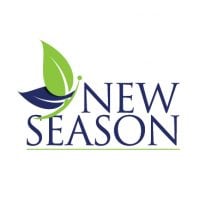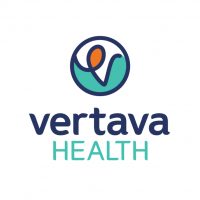Sunflower Landing
Drug Rehab Center in Tutwiler, Mississippi
Sunflower Landing is an Addiction Treatment Facility in Tutwiler, Mississippi founded in 1970, offering comprehensive treatment with both inpatient and outpatient care, individual and group therapy sessions, relapse prevention classes, and aftercare services to help those seeking sobriety from alcohol and other substances achieve long-term sobriety.
About Sunflower Landing in Mississippi
Sunflower Landing, established in Tutwiler, Mississippi, is an addiction treatment facility that has been providing services since 1970. The center specializes in helping individuals struggling with alcoholism, dual diagnosis, opioid addiction, drug addiction, and substance abuse. Sunflower Landing offers a range of treatment options to cater to each individual's needs including drug rehab, dual-diagnosis programs, inpatient care, intensive outpatient treatment, outpatient services, as well as sober-living/half-way houses at residential levels of care. They also accept private health insurance and are affiliated with the Region I Mental Health Center.
Sunflower Landing aims to offer comprehensive support for individuals battling with addiction and substance abuse. Their treatment methods feature a variety of therapies and interventions tailored to address each person's specific needs. Through their drug rehab program, individuals can receive professional assistance in detoxification and managing withdrawal symptoms. In addition to their essential residential level of care programs aimed at creating a supportive and therapeutic environment for recovery, Sunflower Landing provides intensive outpatient programs which prioritize ongoing support while allowing clients to maintain their regular lives outside of treatment. Their dual-diagnosis treatment emphasizes the simultaneous treatment of mental health issues that co-occur with substance abuse disorders. Moreover, participants can benefit from outpatient services such as group therapy sessions and individual counseling designed to foster personal growth and maintain sobriety long-term.
Genders
Ages
Modality
Additional
Conditions and Issues Treated
Some addicts can benefit from substance abuse treatment, which is designed to help them become and remain sober without the use of medications. These programs are typically used by those struggling with drugs like marijuana or hallucinogens. However, they might be beneficial for those with a co-occurring mental health disorder like schizophrenia, major depression or bipolar disorder.
During this type of treatment, the addict will meet with therapists and other professionals on a regular basis to learn coping skills and healthy ways to deal with their addiction and mental health disorder.
Treatment programs often combine medications with counseling, support groups and even medical services like those found in hospitals or doctor’s offices. There are also detoxification services that addicts can use to get sober and avoid severe withdrawal symptoms.
Opioids are a group of drugs that include substances such as heroin, morphine, and oxycodone. These drugs activate opioid receptors in the brain, which produce pleasurable feelings. Opioid addiction occurs when drugs are abused at increasing rates or increasing amounts because the body becomes tolerant of them.
Opioid addiction is typically diagnosed when drug abuse becomes a typical behavior that interferes with an individual’s ability to function daily. The use of the substance results in consequences like legal problems.
Treatment for opioid addiction varies depending on each individual’s needs. Some treatments focus on replacing opioids with other drugs that have similar effects of reducing withdrawal symptoms. Other treatments aim to reduce the risk of relapse by providing psychological support or using more natural methods.
A drug rehab center that uses Dual Diagnosis is more likely to be successful in rehabilitating a person. Dual diagnosis helps to identify and treat any co-occurring disorders. It is essential to screen for both addiction and any untreated mental health issues. A dual diagnosis gives rehab the means to treat addiction while restoring mental and emotional health.
About 70% of patients with drug addiction have at least one other psychiatric diagnosis. Fortunately, dual diagnosis treatment is a proven model that has been highly effective.
Levels of Care Offered
This center offers a variety of custom treatment tailored to individual recovery. Currently available are Drug Rehab, Dual-Diagnosis, Inpatient, Intensive Outpatient, Outpatient, Residential, Sober-Living / Half-Way, with additional therapies available as listed below.
Inpatient rehab means you live there while your addiction or co-occurring disorder is treated. Prescribed medications are used along with counseling.
This type of rehabilitation provides a drug-free environment for people who struggle with chronic/long-term addiction (or their own home). Jobs or school can be put on hold until after the stay to focus solely on recovery.
An intensive outpatient program is usually the first phase of addiction treatment. It provides relief for those addicted, but not ready to commit to an inpatient setting. IOPs consist of a daily 3 to 5-hour program, and there is a required number of hours per week. The goal here is to teach patients healthy coping skills, such as stress management.
Outpatient programs offer a lower intensity level of addiction treatment than inpatient facilities. They are ideal for those who have graduated from inpatient facilities, have a supportive home environment, and are motivated to commit to the program. Services offered include medication-assisted treatment, individual and group therapy, and peer group support.
This treatment is a popular option for those suffering from a lower intensity addiction. It is not advisable for someone who needs to go through a medically supervised detox or does not have a supportive home environment. It requires motivation and dedication to commit to the program without constant monitoring.
Sober Living Homes are an option for those who have completed a treatment program within the past several months. However, it isn’t advisable to use this as a permanent living arrangement because it can lead to a relapse .
The goal of a sober living home is to provide a supportive environment for recovering addicts so they don’t need to return to their previous lifestyles. The homes will not accept residents who are still using drugs or alcohol, and those living in the house must follow a set of rules dictating how they should behave to avoid relapsing.
Residential treatment programs are those that offer housing and meals in addition to substance abuse treatment. Rehab facilities that offer residential treatment allow patients to focus solely on recovery, in an environment totally separate from their lives. Some rehab centers specialize in short-term residential treatment (a few days to a week or two), while others solely provide treatment on a long-term basis (several weeks to months). Some offer both, and tailor treatment to the patient’s individual requirements.
Therapies & Programs
During individual therapy at Sunflower Landing in , the person in recovery meets with a therapist one on one to go over their situation and learn from past mistakes. The counselor or therapist will use this time to address the causes of addiction, triggers, and any mental issue or dual diagnosis. They will also address aftercare plans, giving them the best chances of long-term sobriety.
This therapeutic process is very intense and challenging to go through. Some clients may find it easier to open up with someone apart from their family or loved ones who understand their struggles and experience with addiction.
The process of going through couple’s therapy at Sunflower Landing in allows for both partners to be on the same page regarding addiction recovery. Whether one or both members of the couple struggled with addiction, they can improve their odds of sobriety by undergoing this treatment together. This therapeutic environment teaches how to communicate effectively and avoid relapse triggers while building healthy lifestyles that may help maintain sobriety following graduation from rehab programs.
Family therapy is designed to help addicts get clean and sober by using what they love the most; their family. Most drug treatment centers make it mandatory that the addict’s family attend therapy sessions, which is great because having everyone there to support them makes it much easier for them to get clean. Not only are they surrounded by people who want them to get better, but everyone is there because they want the best for them, not because they feel like they have to be.
Drug addicts are often surrounded by resentful or uneducated family members who would, at times, rather see them stay addicted because it makes their own lives easier. Sometimes they don’t understand what the addiction is or how they play a part in it. They know that during and after the addict’s sobriety journey, they will face challenges and changes that they aren’t sure how to handle. This can be very tough for an addict to go through on their own, which is why it’s so important that they have the support of their family. Just because someone is an addict does not mean that they don’t deserve the love and support of those around them.
Addicts in Tutwiler, MS can find support in group therapy at Sunflower Landing by finding peers who understand their situation and being held accountable. They also learn to develop faith, understanding, and insight into their addiction through shared conversations.
Group Therapy is employed by drug treatment centers to provide the recovering addict with a platform to talk about their feelings and experiences. It also provides for an opportunity to learn from other addicts who have successfully overcome their addiction. It is recommended that all group members be recovering addicts for this type of therapy to work.
Cognitive Behavioral Therapy (CBT) helps addicts comprehend the causes of their substance abuse and the consequences that follow. The treatment’s goal is to help addicts gain self-control and maintain abstinence from drugs and alcohol over the long term. Through CBT, clients learn to recognize and avoid high-risk situations and cope with challenging situations when they arise.
In a 12-Step Program, peers help each other to achieve the goal of total sobriety. 12-Step Programs are available in almost every city in the United States. They’re a relatively simple set of steps that are done continuously to move through life with awareness, accountability, and honesty. The recovery technique used by Alcoholics Anonymous is the 12 step program, but it can relate to any form of addiction.
Patient Experience
Equine Therapy in Mississippi
Equine therapy, also known as horse therapy, involves working with horses to achieve physical, mental, emotional, and social goals. The practice has evolved to incorporate various types of equine activities for people with a wide variety of special needs. This includes individuals suffering from mental health disorders, drug and alcohol addiction issues.
Payment Options Accepted
For specific insurance or payment methods please contact us.
Is your insurance accepted?
Ask an expert, call (888) 674-0062
Region I Mental Health Center Associated Centers
Discover treatment facilities under the same provider.
- Region I Mental Health Center - Tunica in Tunica, MS
- Region I Mental Health Center - Marks in Marks, MS
Learn More About Region I Mental Health Center Centers
Additional Details
Specifics, location, and helpful extra information.
Tutwiler, Mississippi 38963 Phone Number(662) 624-4905 Meta DetailsUpdated November 25, 2023
Staff Verified
Sunflower Landing Patient Reviews
There are no reviews yet. Be the first one to write one.
Tutwiler, Mississippi Addiction Information
Mississippi has one of the highest rates of drug and alcohol abuse-related deaths. Approximately 350,000 residents use illicit drugs every year while another 108,000 abuse alcohol. In one year, doctors in Mississippi prescribed 76.8 opioid prescriptions for every 100 persons. This compares to the national rate of 51.4 prescriptions.
Treatment in Nearby Cities
- Hazlehurst, MS (152.6 mi.)
- Long Beach, MS (268.5 mi.)
- Flowood, MS (121.6 mi.)
- Southaven, MS (69.7 mi.)
- Batesville, MS (35.2 mi.)
Centers near Sunflower Landing
The facility name, logo and brand are the property and registered trademarks of Sunflower Landing, and are being used for identification and informational purposes only. Use of these names, logos and brands shall not imply endorsement. RehabNow.org is not affiliated with or sponsored by Sunflower Landing.




